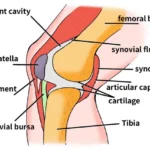Plus, tips on how to recover
Today, people are enjoying longer lives — but joint pain from osteoarthritis persists and can interfere with an active lifestyle. That’s why many people decide to have hip or knee replacement surgery.
But is it possible to ever be too old for joint replacement? Orthopedic surgeon discusses whether there’s an age cutoff for this surgery and what you should consider before having it.
What is total joint replacement?
When someone talks about getting a hip or knee replacement, they’re probably referring to total joint replacement surgery.
Surgeons perform total joint replacements on many joints, but hips and knees are the most common. During total joint replacement, an orthopedic surgeon removes the damaged cartilage. Then, they replace the damaged sections of the joint with specialized metal, plastic or ceramic parts.
This surgery relieves symptoms of osteoarthritis (OA), which is the most common type of arthritis. OA happens when the cartilage inside a joint breaks down. Cartilage is the smooth material that cushions your joints. When it wears down over time, it causes pain, swelling and stiffness.
The new joint allows you to move without the pain and stiffness of OA.
How old is too old for hip or knee replacement?
“More people are reaching their 80s and 90s, and many of them lead active lives. “So we’re seeing more people in these age groups who want relief from hip or knee pain.
Total joint replacement is major surgery and requires several weeks of recovery at home. But despite this, you’re never “too old” to have your hip or knee replaced.
There is no age cutoff for joint replacement. Studies have found that people in their 80s and 90s benefit from hip or knee replacement as much as younger people.
Recovery from hip or knee replacement
Here’s what you can expect to do after your surgery.
- Get up and move: You won’t stay in that hospital bed for long. Your medical team will help you get up and move around soon after the procedure so you can start using your new joint as quickly as possible. Some people go home the same day, while others may need to stay overnight in the hospital.
- Start physical therapy: Your surgeon will talk with you about exercises and a physical therapy plan. You will go to physical therapy for several weeks to build strength and help your joint heal properly.
- Get the right pain relief: If you have pain, your surgeon may recommend ice or medications to help.
- Sit on the passenger side: You won’t be able to drive immediately after surgery. Your surgeon will tell you when it’s safe to drive again.
What to consider before total joint replacement
There is no one-size-fits-all approach to hip or knee replacement. The surgical team will personalize the surgery for you. And you need to weigh the benefits and risks of having the surgery.
Before undergoing hip or knee replacement surgery, you and your healthcare provider should discuss the following.
Your overall health
Having a chronic condition doesn’t exclude you from hip or knee replacement. But your medical team should consider any conditions before you move forward. For instance, if you have:
- Diabetes: You may need a test to ensure your blood sugar is under control.
- Heart condition: Your orthopedic surgeon may work with a cardiologist during surgery and recovery.
Medications you take
If you take prescription or over-the-counter medications or supplements, your surgeon needs to know. You may need to stop taking them several days before surgery.
Muscle strength
Recovery from total joint replacement takes work. You have to complete specific exercises and follow a physical therapy plan. But you don’t need to be in peak physical condition to get a new hip or knee. Your doctor will just want to ensure you have enough strength to successfully recover from surgery.
Family and social support
Having people who can help you during recovery is a key part of the joint replacement process. Make sure you have a friend or loved one who can stay with you during the early days of recovery. And you’ll need to have someone to run your errands or take you to therapy before you can drive again.
Other pain relief options
Not everyone who has OA needs joint replacement surgery. Your orthopedic surgeon may recommend these options before deciding on surgery:
- Cortisone (steroid) injections for pain and inflammation.
- Regenerative therapies, which involve injections of special substances into the joint.
- Medications.
- Regular exercise.
- Physical therapy.
- Weight loss if you carry excess weight.
Is hip or knee replacement worth it?
Every surgery has risks. The question you must ask — and discuss with your healthcare provider — is whether the benefits outweigh the risks.
Older adults often have many years ahead of them. How do you want to live those years? Don’t be afraid to ask your doctor about joint replacement, no matter your age. When you have all the facts, you can make an informed decision.





